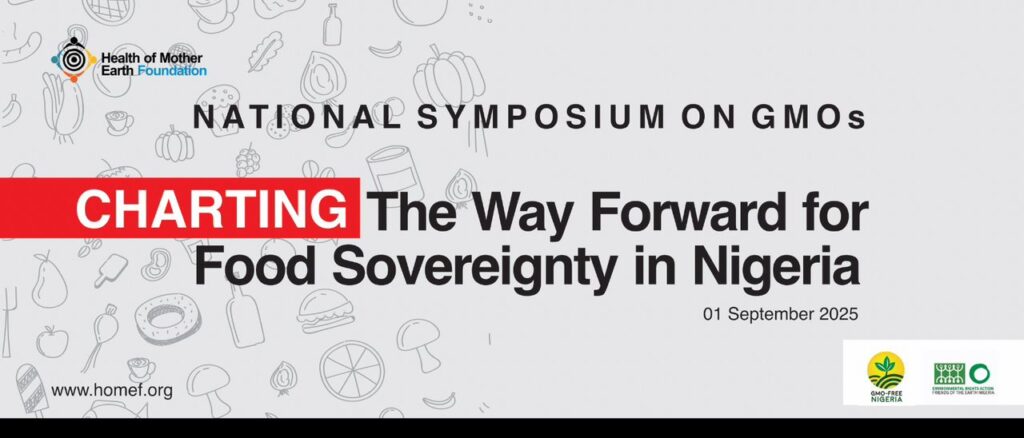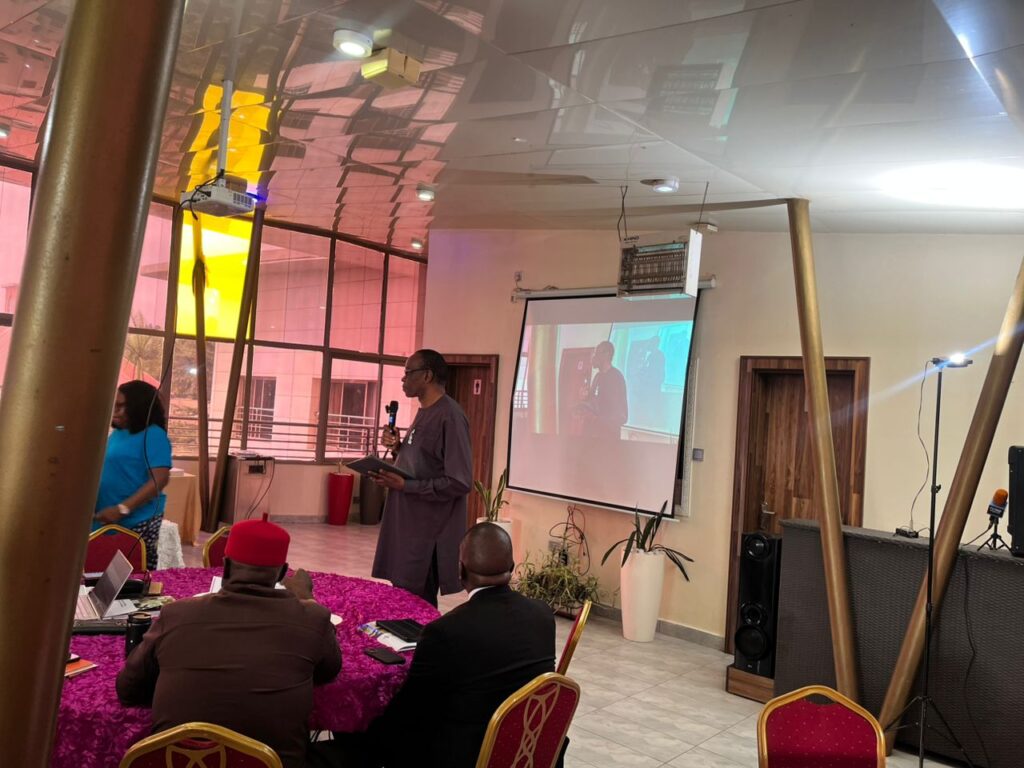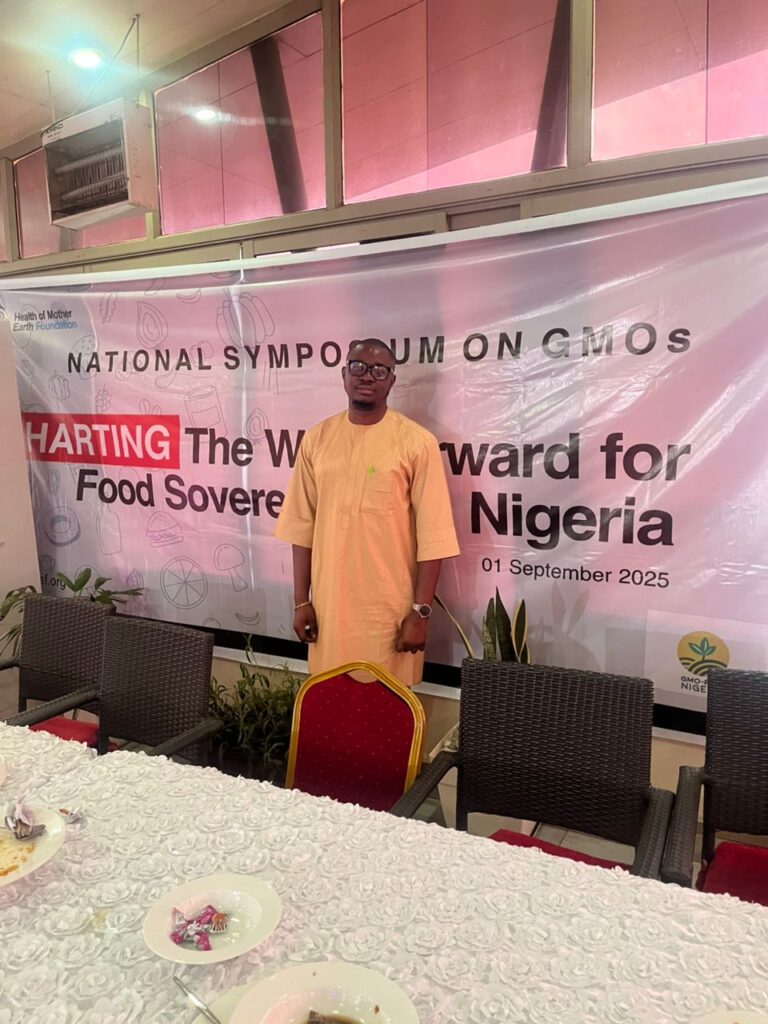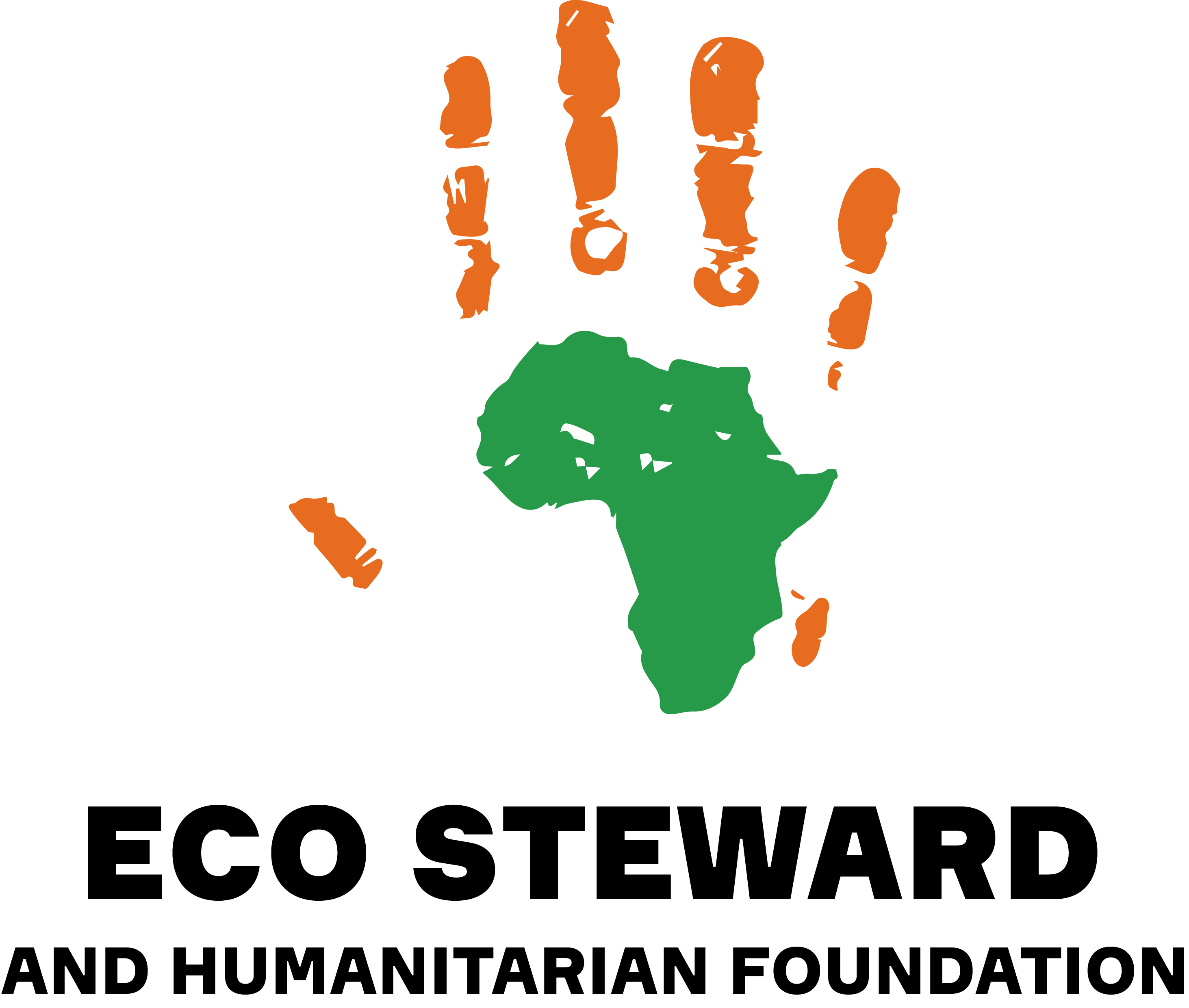
Abuja, Nigeria – September 1, 2025 – The EcoSteward and Humanitarian Foundation (EHF), represented by its Program Director Nweze Emmanuel Obinna, stood alongside farmers, scientists, women, youth, and civil society groups at the National Symposium on GMOs – Charting the Way Forward for Food Sovereignty in Nigeria. The event, convened by Health of Mother Earth Foundation (HOMEF), Environmental Rights Action (ERA), and the GMO-Free Nigeria Alliance, created a powerful space to interrogate Nigeria’s increasing embrace of genetically modified organisms (GMOs) and to champion agroecology as a sustainable alternative.
The GMO Debate in Nigeria

Nigeria has become one of Africa’s fastest adopters of GMOs, with the National Biosafety Management Agency (NBMA) Act of 2015, and its 2019 amendment, paving the way for approvals. By 2025, more than 20 genetically modified crops had been cleared for food, feed, and commercial planting. The approval of Tela Maize in 2024 ignited widespread opposition, sparking protests from farmers, civil society, and consumer rights advocates.
Critics argue that:
- GMO approvals lack independent, long-term safety studies.
- GMOs undermine indigenous seed systems and biodiversity.
- They strengthen corporate control over food production, while farmers lose autonomy.
These concerns were echoed at the symposium, where participants demanded answers to fundamental questions: In whose interest are GMOs approved? Do they truly solve food insecurity? And what alternatives exist for Nigeria’s food sovereignty?
Voices from the Symposium
Experts and activists presented powerful arguments against GMOs:
- Prof. Tatfeng Mirabeau emphasized the health risks: “There is a direct connection between disease and food. What you eat can kill you.”
- Dr. Ifeanyi Casmir reframed the conversation: “Food sovereignty lies not in blind adoption of global technologies but in safeguarding national wellbeing, empowering farmers with knowledge, and ensuring that science serves humanity rather than the reverse.”
- Civil society leaders warned that transgenic crops are incompatible with mixed cropping systems that sustain Africa’s ecological balance.
Ecosteward Foundation’s Intervention

Representing EcoSteward Foundation, Nweze Emmanuel Obinna brought a youth-driven and community-based perspective to the debate. Drawing from EHF’s ongoing projects, he showcased how agroecology is already working across Nigeria:
- Youth Engagement: From the University of Calabar dialogues to the launch of school-based agroecology clubs in Abuja, EHF is nurturing a generation of “eco-champions” equipped with knowledge of composting, crop rotation, and organic farming.
- Biodiversity Conservation: The Foundation has established tree nurseries with over 1,900 seedlings of indigenous species such as ogbono, wild custard apple, and bitter kola, contributing to ecological resilience and food sovereignty.
- Policy Influence: Through advocacy, EHF played a role in ensuring that agroecology was included in Nigeria’s revised NDC 3.0, a milestone that anchors ecological farming within national climate action.
- Community Mobilization: Youth-led campaigns like #Youth4Agroecology and #Agroecology4Nigeria are raising public awareness, mobilizing grassroots voices, and challenging the narrative that GMOs are the only path forward.
“Agroecology is not just a farming practice,” Obinna stressed. “It is a movement for justice, resilience, and sovereignty. It connects the health of our soils with the dignity of our farmers and the future of our children.”
The Broader Picture
Globally, the debate around GMOs is intensifying. While multinational corporations promote genetic engineering as a solution to hunger and climate change, independent studies and international bodies like IPES-Food and FAO highlight agroecology as a superior long-term strategy. Agroecology enhances biodiversity, strengthens rural economies, and offers climate resilience without the ecological costs of industrial agriculture.
Across Africa, organizations like the Alliance for Food Sovereignty in Africa (AFSA) are advancing agroecology as the continent’s pathway to achieve the Sustainable Development Goals (SDGs), especially on hunger, climate action, and life on land.
Charting the Way Forward
The symposium closed with a united call to action:
- Policy Reform: Review the NBMA Act to prioritize biosafety, transparency, and public accountability.
- Invest in Agroecology: Support farmer training, extension services, and research rooted in ecological practices.
- Protect Indigenous Seeds: Safeguard local seed systems against corporate monopolies.
- Public Awareness: Expand grassroots campaigns to educate Nigerians on the risks of GMOs and the promise of agroecology.
Conclusion
The National GMO Symposium was more than a debate—it was a declaration of intent. Nigerian farmers, youth, researchers, and civil society are determined to resist the unchecked spread of GMOs and to uphold food sovereignty through agroecology.
By standing alongside these voices, EcoSteward Foundation reaffirmed its commitment to advancing community-led, climate-resilient, and justice-driven agriculture. The path ahead is clear: Nigeria’s food future must be built not on corporate-controlled technologies, but on the wisdom of its people and the resilience of its ecosystems.
